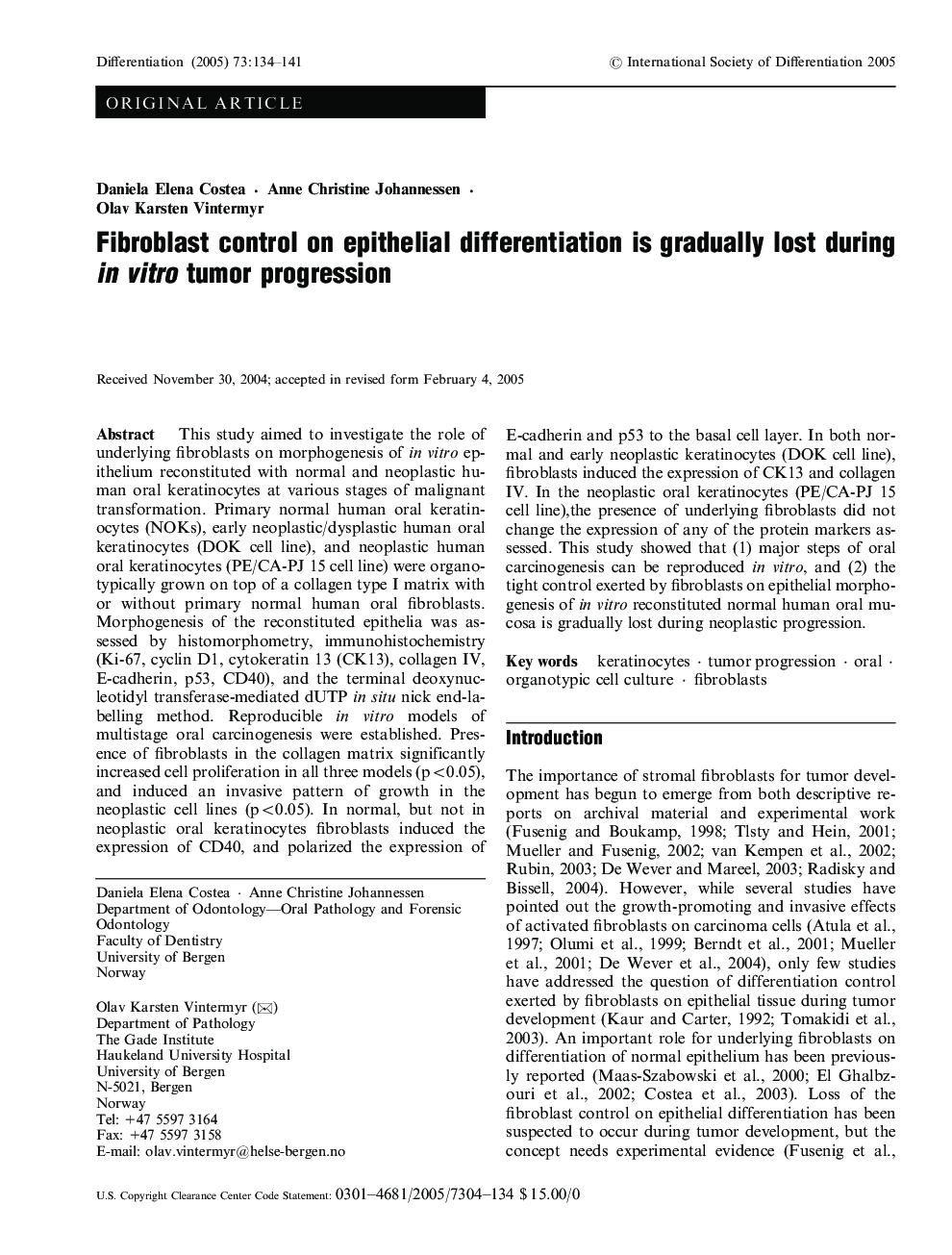| Article ID | Journal | Published Year | Pages | File Type |
|---|---|---|---|---|
| 10903469 | Differentiation | 2005 | 8 Pages |
Abstract
This study aimed to investigate the role of underlying fibroblasts on morphogenesis of in vitro epithelium reconstituted with normal and neoplastic human oral keratinocytes at various stages of malignant transformation. Primary normal human oral keratinocytes (NOKs), early neoplastic/dysplastic human oral keratinocytes (DOK cell line), and neoplastic human oral keratinocytes (PE/CA-PJ 15 cell line) were organotypically grown on top of a collagen type I matrix with or without primary normal human oral fibroblasts. Morphogenesis of the reconstituted epithelia was assessed by histomorphometry, immunohistochemistry (Ki-67, cyclin D1, cytokeratin 13 (CK13), collagen IV, E-cadherin, p53, CD40), and the terminal deoxynucleotidyl transferase-mediated dUTP in situ nick end-labelling method. Reproducible in vitro models of multistage oral carcinogenesis were established. Presence of fibroblasts in the collagen matrix significantly increased cell proliferation in all three models (p<0.05), and induced an invasive pattern of growth in the neoplastic cell lines (p<0.05). In normal, but not in neoplastic oral keratinocytes fibroblasts induced the expression of CD40, and polarized the expression of E-cadherin and p53 to the basal cell layer. In both normal and early neoplastic keratinocytes (DOK cell line), fibroblasts induced the expression of CK13 and collagen IV. In the neoplastic oral keratinocytes (PE/CA-PJ 15 cell line), the presence of underlying fibroblasts did not change the expression of any of the protein markers assessed. This study showed that (1) major steps of oral carcinogenesis can be reproduced in vitro, and (2) the tight control exerted by fibroblasts on epithelial morphogenesis of in vitro reconstituted normal human oral mucosa is gradually lost during neoplastic progression.
Related Topics
Life Sciences
Biochemistry, Genetics and Molecular Biology
Cancer Research
Authors
Daniela Elena Costea, Anne Christine Johannessen, Olav Karsten Vintermyr,
